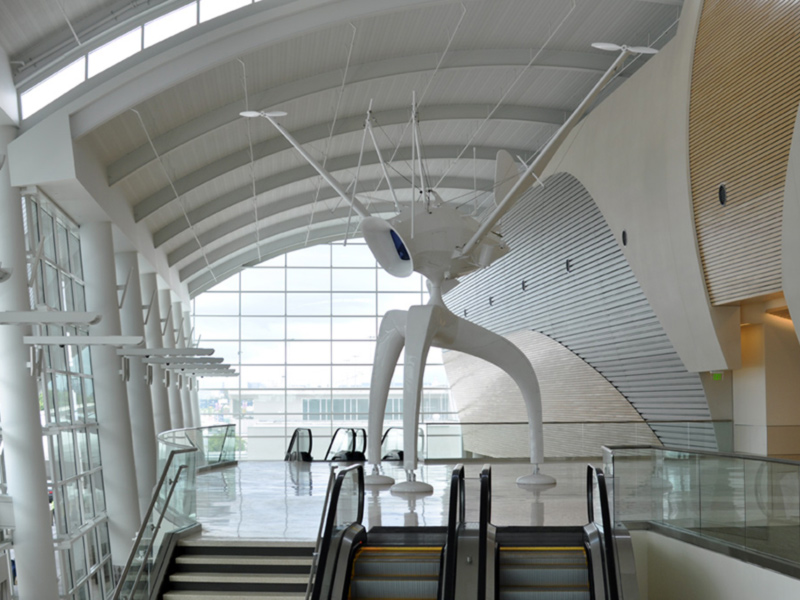
Resource & Waste Management
Guadalupe River & Gardens
As an environmental leader, the San José Mineta International Airport supports the Guadalupe River Trail which runs adjacent to the airfield and the Guadalupe Gardens. These trails are a part of the Envision San José 2040 General Plan of creating 100 miles of interconnected trails which supply commuters with easy access routes and recreation space. The Guadalupe River Trail runs 11 miles through the San José area. This trail and garden foster awareness with the local environment.
There are 20 storage spaces for bikes that are available near the Airport terminals for customers, travelers and workers which are easily accessible from the Guadalupe River Park trail.
Environmental Stewardship
At SJC we have secured 84 acres of infield areas which are a home to a resident population of Western Burrowing Owls, a California Species of Special Concern.
The Burrowing Owl is one of the smallest and unique species of owls, growing to a height of approximately 9 inches, weighing about 4 oz., and living in underground burrows. We have a wildlife management program that actively manages the Western Burrowing Owls within the infield areas to ensure the ongoing safety of both the burrowing owls and aviation operations. The owls are banded at a young age, with a specific code that allows biologists to observe owls into adulthood.
For more information on Burrowing Owls, visit the City of San José's website.
Reduction & Recycling
Airport environmental staff works closely with food concessions, tenants and janitorial staff to improve waste management at the facility. When the new terminal opened, receptacles were purchased and installed which improve the convenience and accessibility of recycling for passengers.
After researching the benefits of composting and conducting a waste audit of concession kitchens we found that we can compost over 70% of what enters the waste stream. Environmental staff worked closely with concessions, training them to sort food and compostable waste from trash and recyclables. Compostable materials are taken to Z-Best, a nearby Industrial Composting facility, where they are transformed into nutrient rich compost and fertilizer.
By implementing waste reduction measures, the Airport has reduced disposal costs and trash going to the landfill striving for zero waste by 2040.



